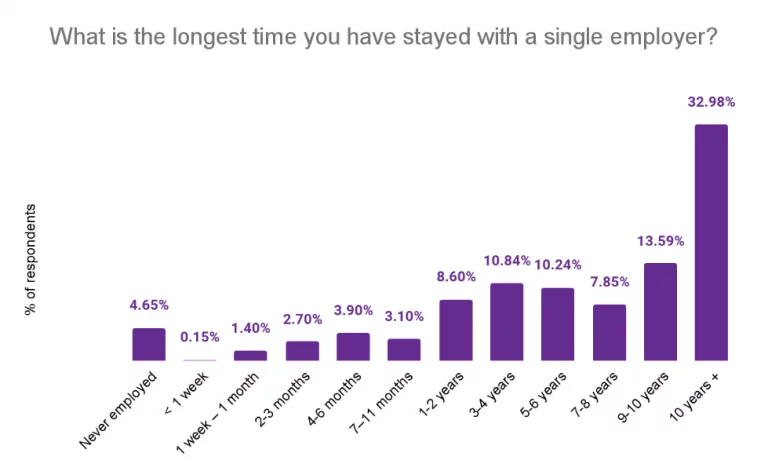
HRM and Line Management – Taking Care Of Your Team
Contents
One of the biggest shocks that new line managers face is the amount of HRM the role involves.
In this article, we’ll explore how and why line managers work with HRM as part of their role.
Understanding this relationship is key to being a successful line manager, and is covered in our line manager courses.
What Is Human Resource Management?
Human Resource Management, or HRM, is responsible for all aspects of people management throughout an organisation.
It has responsibility for:
- Recruitment & selection.
- Performance management.
- Coaching & development.
- Succession planning.
- Compensation and benefits.
- HRM data and analytics.
For full details, see this article: 10 Things HR Departments Do To Help Their Employees Succeed
Where Does Line Management Overlap With HRM?
A line manager has direct responsibility for everyone in their team. Our article – What Is A Line Manager? – covers this in more detail.
This part of the role of a line manager is often the steepest learning curve for new line managers.
They will be involved whenever HRM gets involved with one of their team. This could be an individual-specific issue, or when HRM are rolling out a new policy or procedure, that needs communicating to everyone in the business.
Line managers know their team better than anyone else and so are best placed to work with HRM to reach the best outcome.
Knowing this, effective line managers build good relationships with their HRM department.
They know that they will need to work closely with HRM day-to-day across a number of areas. In addition, they know that if they have issues with an employee, HRM will be able to offer valuable help and advice in sorting the problem out.
Let’s take a closer look at the areas where HRM and line managers overlap.
6 Areas Line Managers Get Involved in HRM
1. Identifying training needs
Line managers are responsible for their team’s performance.
Consequently, they are ideally positioned to identify any skill gaps that an individual on their team might have.
If they identify a significant skill gap, the line manager will need to work with HR to resolve it.
Filling the skill gap may require sending them on a course or a structured mentoring programme. Either way, working with your HR department is likely to achieve the best result.
2. Appraisals
A company’s appraisal process will be established by HRM. However, it is implemented by line managers.
Line managers are best placed to carry out performance reviews because they have the closest working relationship with their team members.
They can offer the most insightful comments on performance and attitude and ensure that the appraisal is as fair and detailed as possible.
Once an appraisal is completed, it will need to be registered with HRM. If any issues are identified, then the line manager may work with HRM to resolve them.
3. Recruitment
Line managers take an active part in interviewing new hires for their team, as they will manage the new hire day-to-day once hired.
Usually, HRM is responsible for producing job specifications, running job adverts and carrying out an initial screen of applicants.
However, once HRM has built a list of potential candidates, they will then work with line managers to interview candidates and choose someone for the role.
While no-one is perfect, obviously in order for a manager to decide who their preferred candidate is, they will need to have a list of the qualities that they look for in all of their team members. Find out what questions people ask in line manager interviews here!
4. Salary recommendations
Line managers work hand in hand with HRM where salary is involved.
One of the annual appraisal process outputs will be recommendations regarding an individual’s pay and whether they should receive a pay rise.
As HRM is responsible for managing a company’s salary structure and payroll, this obviously has to be done in conjunction with them.
5. Relaying corporate news
Line managers act as the liaison between the company and the employee.
They are often used to relay information – good or bad – to their teams.
If the information is HRM related, line managers will work with HRM to ensure that announcements are handled appropriately and carried out at the right time.
If a team member has issues with the announcement, their line manager will be responsible for liaising with HRM to address the problems.
6. Supporting well-being
Line managers are responsible for ensuring the well-being of their team.
This responsibility ranges from small tasks like rearranging an employee’s workload if they are struggling, to more important tasks like ensuring that employees have the appropriate safety equipment.
If an employee has a severe well-being issue (for example suffering from stress caused by an excessive workload), then the matter would need to be reported to HRM so that you can find a combined solution.
The ability to listen clearly to team members to understand what is going on is another skill that new line managers need to learn.
2 Areas Of HRM Line Managers Should Not Get Involved In
Being a line manager means working closely with your HRM department. As we’ve seen, the roles overlap in a number of areas.
However, as a line manager, you need to make sure you don’t overstep the mark and start taking on tasks your HRM department is responsible for.
Let’s look at a couple of the areas where you could get yourself in trouble as a line manager.
1. Making policies and procedures
Line managers are responsible for implementing policies and procedures. They do not create policies and procedures.
Companies are hierarchical.
Line managers are responsible for implementing the corporate guidelines and policies they are given by HRM. They should not be creating policies and procedures.
The Human Resources department is staffed by professionals who specialise in employment administration and legislation.
They will have an overarching human capital strategy for the business. The procedures and policies will fit within that strategy.
If you start creating procedures without a complete understanding of that strategy, you will cause all sorts of legal and practical problems.
2. Creating contracts
Line managers play an important role in the recruitment process for new employees, as we’ve seen.
Employment contracts require specialist knowledge of employment law. This knowledge will reside in your HRM department, and this is why they are responsible for creating new employment contracts.
Of course, if you will manage the individual concerned, you should have input into the contract, but the responsibility for creating the contract should be left to your HRM department.
Conclusion
HRM professionals and line managers need to work together to get the best out of employees and meet their company’s goals.
As a line manager, you need to understand where your responsibilities stop, and HRM’s responsibilities start.
Hopefully, this article has helped you understand where that line is.
If you have a concern, the best thing you can do is take some time to develop a good relationship with your HRM department.
That way, if you’re not sure, you can easily pick up the phone to them.
Looking for more tips on management? Read our guide on: line manager’s role in coaching here or our article about tips for supervisors.
Image Credit: Pexels,



